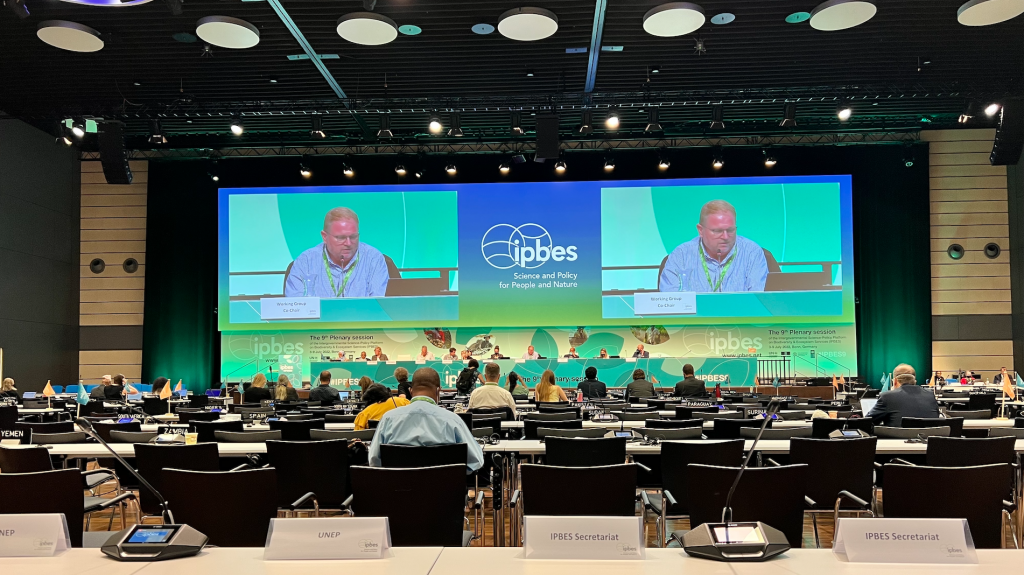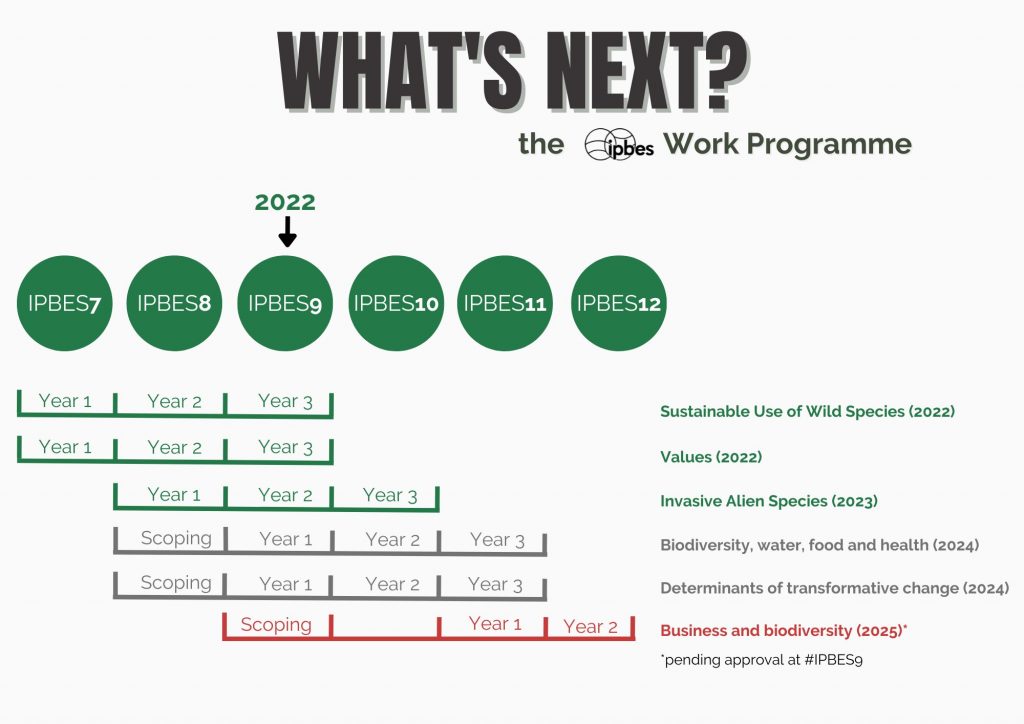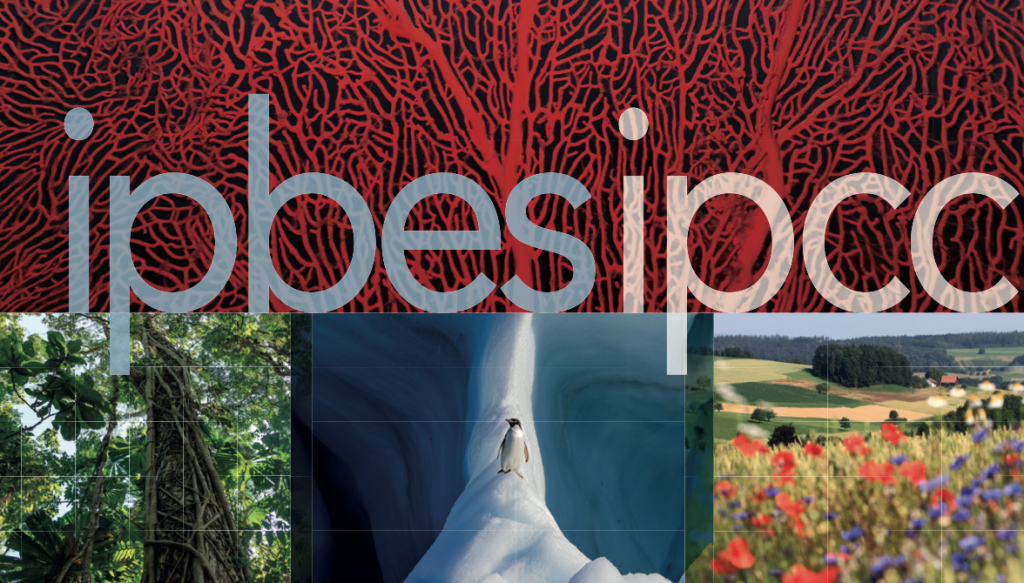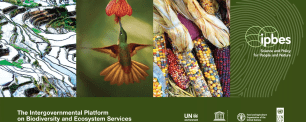What is IPBES?
Biodiversity loss is undeniable, but at what rate? Why? How does it affect us? And what can we do? The Intergovernmental Platform on Biodiversity and Ecosystem Services (IPBES) has been answering these questions since its creation in 2012.
IPBES is an independent international body, linked to the United Nations (UN), which was created to connect the scientific community and the political sphere with a common goal: to monitor the health of our ecosystems - from the soil to the ocean -, their biodiversity and the essential services they provide us, such as the production of clean water, climate regulation, pollination in agriculture or recreational activities. It also assesses the threats nature faces and the measures to protect it.
This knowledge is compiled in regular reports in which hundreds of scientists from the almost 140 IPBES member countries participate as authors. In no case is the research carried out in-house, but the authors review thousands of scientific papers that have already been published on the topic.
IPCC and IPBES: two sides of the same coin
IPBES has a counterpart in the field of climate change, the well-known Intergovernmental Panel on Climate Change (IPCC). They have in common that they bring together experts from all over the world to reach a consensus in the field of biodiversity, in the case of IPBES, and the area of climate change, in the case of IPCC.

In addition, the two organisations act as independent advisors to global conferences organised by the United Nations, where the direction of international environmental policies and goals is decided. The IPCC is the independent advisor to the United Nations Framework Convention on Climate Change (UNFCCC), which is organising the next COP27 in Egypt in November 2022. On the other hand, IPBES advises the Convention on Biological Diversity (CBD), which is organising COP15 in Montreal (Canada) in December 2022. The CBD is also part of the United Nations Environment Programme (UNEP).
IPBES advises the Convention on Biological Diversity (CBD), which is organising COP15 in Montreal (Canada) in December 2022. The CBD is also part of the United Nations Environment Programme (UNEP).
Related to CBD, one of the most ambitious biodiversity strategies was agreed upon at the COP10 on biodiversity held in Aichi Province, Japan, in 2010. Then, the 196 CBD member countries signed the Strategic Plan for Biodiversity 2011-2020. This plan was divided into five goals grouped into 20 targets known as the Aichi Targets, which aimed to improve the status of biodiversity through various actions. The targets were to be met by 2020; however, none were fully met according to the last biodiversity COP, COP14.
Eight reports
IPBES assessment reports can be global, looking at biodiversity, ecosystem services and their interrelationships on a worldwide scale; regional or sub-regional, focusing on specific geographical areas and enabling action at a more local level; thematic, assessing a particular topic, e.g. pollination and food production, land degradation and restoration; or methodological, including available predictive models and other tools to evaluate the present and future of biodiversity.
Once prepared, the reports are presented at annual plenary meetings. Since its foundation, IPBES has produced a total of eight reports. At the ninth meeting, which takes place in Bonn from 3 July to 11 July 2022, IPBES will disclose two new reports, 'Sustainable use of wild species' and 'Values'.
Lluís Brotons, CSIC researcher at CREAF and Alicia Pérez-Porro, CREAF scientific coordinator, will attend the presentation of both reports as observers.

The importance of pollinators
The first IPBES report was 'Pollinators, pollination and food production' in 2016. The document highlighted that thecurrent decline of bees and other pollinators threatens global food production. It also included the reasons behind and possible solutions. Jordi Bosch, senior researcher at CREAF, collaborated as an author on this report.
Future scenarios
2016 also witnessed the publication of the report 'Hypotheses and models of biodiversity and ecosystem services', which focused on using predictive models to forecast the future of biodiversity and ecosystem services under various likely scenarios. Lluís Brotons, CREAF researcher and CSIC professor, was the author and chair of this report.
Think global, act local
Two years later, in 2018, IPBES published four reports focusing on regions and sub-regions in Africa, the Americas, Asia-Pacific and Europe and Central Asia. Each piece explains why biodiversity in these areas is important, its status, threats and future projection. It also included the policies and governance structures that can lead to a more sustainable future. Lluís Brotons, CSIC researcher at CREAF, participated as an author of the regional report for Europe and Central Asia.
Restoring the soil
A report documenting the degradation that land has suffered, along with measures to restore its biodiversity, prevent erosion and regenerate the soil ecosystem, was also disseminated in 2018.
We are losing biodiversity at an accelerating rate
The latest report, 'Global Assessment of Biodiversity and Ecosystem Services', was launched in 2019. It warns of an unprecedented decline in biodiversity. In particular, it states that one million species, out of eight million existing animal and plant species, are threatened with extinction. This means many of them could disappear in just a few decades if we do not take urgent and effective actions.
Two new reports
The two new reports, 'Sustainable use of wild species' and 'Values', will be released on Monday 11 July.
The first includes 83 authors from 33 different countries and a review of 6200 scientific papers. This new report brings together proposals to halt species extinction.
The second relies on 82 experts from 47 countries and a review of more than 13,000 scientific papers. It explains the values of nature and its benefits from the perspective of different cultures and groups, which may include services such as producing quality water and air, growing food or extracting raw materials, a reservoir of CO2, etc. Additionally, it considers nature a space for human well-being: what if you could not breathe in a forest or dive into the ocean and observe its life? This report aims to put the value of nature and its richness at the centre of political actions and choices.
The link between climate and biodiversity
Climate and biodiversity are deeply connected, and changes in one affect the other. For example, a rich and biodiverse ecosystem is more resilient to climate change, just as a rise in temperature can lead to the death of corals.
For this reason, in 2020, IPBES and IPCC organised a joint workshop with 50 of the world's leading experts on biodiversity and climate experts. The aim was to understand better the synergies and trade-offs between biodiversity protection and climate change mitigation and adaptation. It was the first collaboration between these two global organisations. The results are synthesised in this report.

One example of a CREAF investigation that recognises and studies the link between climate and biodiversity is that carried out by Jofre Carnicer, one of the authors of the latest IPCC report, CREAF researcher and lecturer at the Universitat Autónoma de Barcelona (UAB). In particular, his research focuses on microclimates or climate refugees, areas with unique climate and biodiversity characteristics that make them more resilient to the effects of climate change.
A Catalan IPBES
In Catalonia, the new Observatori del Patrimoni Natural i la Biodiversitat emulates the format of the global IPBES and is starting to operate in 2022. This collaborative space already brings together ten scientific entities studying biodiversity and nature. Together they are working with key Catalan administrations managing natural heritage to provide them with the scientific information they can use to improve conservation policies. In addition, this Observatori has already published a report on the state of nature in Catalonia in 2020. The Catalan Government's Department of Climate Action is driving this major project, which is coordinated by its two leading research centres, CREAF and the Centre de Ciència i Tecnologia Forestal de Catalunya, the CTFC.







